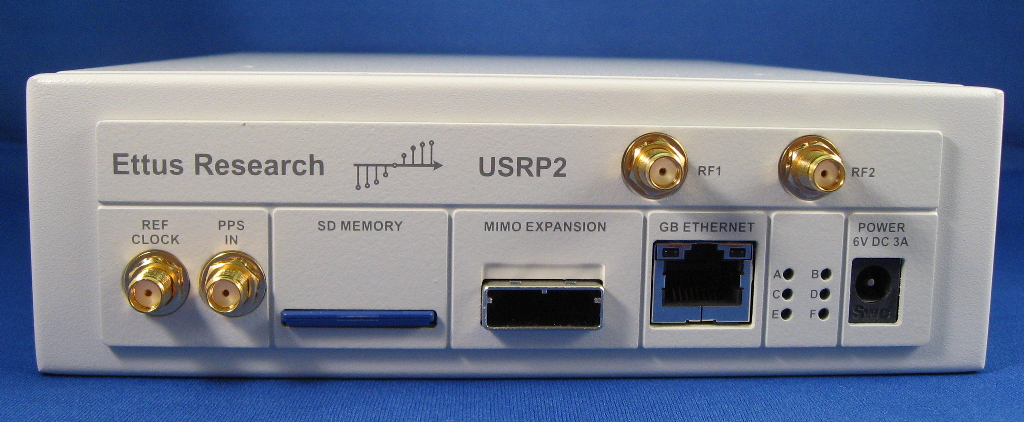Step-1 Taking a recorded data of wcdma signal with following specs
sample rate - 12.5MSPS
center frequency - 2.15149GHz
power level - (-65dB)
number of complex samples - 1e7
File is located in /home/sumit/wcdma_data_dump
Step-2 Reading the data in matlab with the following process
cd /home/sumit/wcdma_data_dump/ % go to current directory
fid = fopen('/home/sumit/wcdma_data_dump/wcdma_65','rb'); % open file descriptor
wcdma_matlab_65 = fread(fid,20000000,'float32'); % read the binary file as 32 bit complex float
% i.e. 32 bits for I and 32 bits for Q
fclose(fid); % close the file descriptor essentially
save('wcdma_matlab_65.mat','wcdma_matlab_65'); % save the current data in .mat format
% now we will ignore first 400000 samples because there was a peak there
% because of the LO leakage
wcdma_noleak_65 = wcdma_matlab_65(800000:20000000);
% I have taken 800000 because the samples are here in the format of I and Q
% cascaded
save('wcdma_noleak_65.mat','wcdma_noleak_65');
% creating the data with no LO leakage
temp1 = wcdma_noleak_65;
cd /home/sumit/wcdma_data_dump/
fid = fopen('temp1.bin','wb');
fwrite(fid,temp1,'float32'); % created binary file for the no LO leakage data
fclose(fid);
Step-3 Echo generation
Xecho(t-delay) = X(t-0) + X(t-delay)
I made following flow graph
Step-4 Echo Visualization
Echo affected signal looks like this
While the original signal looked like this
sample rate - 12.5MSPS
center frequency - 2.15149GHz
power level - (-65dB)
number of complex samples - 1e7
File is located in /home/sumit/wcdma_data_dump
Step-2 Reading the data in matlab with the following process
cd /home/sumit/wcdma_data_dump/ % go to current directory
fid = fopen('/home/sumit/wcdma_data_dump/wcdma_65','rb'); % open file descriptor
wcdma_matlab_65 = fread(fid,20000000,'float32'); % read the binary file as 32 bit complex float
% i.e. 32 bits for I and 32 bits for Q
fclose(fid); % close the file descriptor essentially
save('wcdma_matlab_65.mat','wcdma_matlab_65'); % save the current data in .mat format
% now we will ignore first 400000 samples because there was a peak there
% because of the LO leakage
wcdma_noleak_65 = wcdma_matlab_65(800000:20000000);
% I have taken 800000 because the samples are here in the format of I and Q
% cascaded
save('wcdma_noleak_65.mat','wcdma_noleak_65');
% creating the data with no LO leakage
temp1 = wcdma_noleak_65;
cd /home/sumit/wcdma_data_dump/
fid = fopen('temp1.bin','wb');
fwrite(fid,temp1,'float32'); % created binary file for the no LO leakage data
fclose(fid);
Step-3 Echo generation
Xecho(t-delay) = X(t-0) + X(t-delay)
I made following flow graph
Step-4 Echo Visualization
Echo affected signal looks like this
While the original signal looked like this






